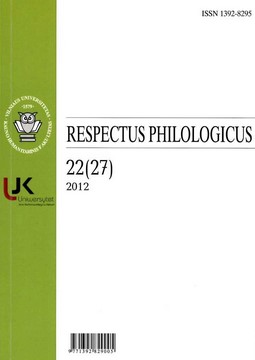CZESKO-POLSKIE STOSUNKI JĘZYKOWE W ZAKRESIE SŁOWNICTWA KULTURY DUCHOWEJ (PRZESZŁOŚĆ I STAN OBECNY)
CZECH AND POLISH LINGUISTIC RELATIONS IN THE VOCABULARY OF SPIRITUAL CULTURE (PAST AND PRESENT)
Author(s): Michał ŁuczyńskiSubject(s): Christian Theology and Religion, Lexis, Historical Linguistics, Comparative Linguistics, Western Slavic Languages
Published by: Vilniaus Universiteto Leidykla
Keywords: lexicology; loanwords; religious vocabulary; Polish language;
Summary/Abstract: This paper discusses the role of the Czech language in forming Polish vocabulary. The question is presented on the basis of one of the thematic groups of vocabulary, beliefs and religion, classified as Bohemianisms, including such words as Old Polish anioł, diabeł, and tatrman, as well as the Polish dialectal antyjasz, b’inek, cwerg, czechman, dias, fajermon, Fontana, hastrman, jaroszek, korfanty, kuźlak, mužík, Pustecki, raraszek, sotona, szatan, waserman, wiestnica and zazrak. The classification of Czech borrowings in Polish includes three groups. The main groups are: borrowings from Old Czech, borrowings from literary Czech from the 14th to the beginning of the 16th centuries, and borrowings from common Czech dialects (especially from a transitional group of dialects). The first and second group contains many international words (borrowings from Greek, Latin and German), while the third appear chiefly in the Polish dialects of Silesia and the Małopolska province. The author notes that the early Old Czech brought Latin borrowings from Christian terminology and demonological nomenclature. The 14th and 15th and also 20th centuries brought words related to witchcraft and traditional demonology, such as the names of wizards and witches, the devil, ghosts, etc. The author ascertains that, first of all, such loan names concern beings of the lowest demonic ranks and, in general euphemistic determination, present “evil ghosts.” Linguistic geographical analysis indicates that Czech loans of demoniac names occur mainly in the south-west and repeatedly exhibit a strictly regional (sometimes individual) character. The Czech language has also fulfilled an intermediary role in adapting borrowings from other languages (German, Greek and Latin); it has thus had a significant effect on modern disparity and Polish mythological vocabulary. This article aims at the ethnic and chronological classification of fragments of Slavic mythological vocabulary, and analyzes the problem of language influence between Czech and Polish.
Journal: Respectus Philologicus
- Issue Year: 2012
- Issue No: 22(27)
- Page Range: 190-196
- Page Count: 7
- Language: Polish

